- Home
- Catherine Coulter
Eleventh Hour Page 7
Eleventh Hour Read online
Page 7
They didn’t get a single look from any of the tourists or staff at the Bennington. Once they were in Dane’s room on the fourth floor, he said, “You still don’t look like you’re quite up to snuff. But better, much better. Would you like to shower and wash your hair or have an early dinner first?”
No big surprise. She opted for dinner. When it arrived twenty minutes later, he waved her to the small circular table with its two chairs and the room-service dinner he’d ordered up for them.
She said, “I look fine, really. No one noticed me at all. I’ll just wear these clothes until you can catch this guy.”
“Oh? And then you’re going to trot back to the shelter? Or maybe panhandle on Union Square?”
“Yes. Whatever.”
“I threw away your homeless clothes.”
She gave him a long, emotionless look. “I wish you hadn’t done that. They were all I had.”
“When this is all over, you’re not going back to a homeless shelter.” He took a bite of his BLT, sat back, looked at her thoughtfully, and said, “No, you weren’t going to do that in any case, were you? You’re planning to hotfoot it out of town once this is over, aren’t you?”
She didn’t raise her head, just slowly and steadily ate her way through the pile of french fries on her plate. They were well done, brown and crispy, just the way she liked them.
She said, “You’re right, yes. When this is over, I’m gone. I’m thinking about the Southwest. It’s really warm there during the winter months.”
“At least you’re telling me some of the truth now. Hey, you like french fries.”
“It’s been a while since I’ve had any. They’re wonderful.”
“Michael loved french fries, too, claimed they helped him concentrate better on the football field and made girls think he was wearing a really nice aftershave lotion. Who knows?”
She raised her head. “Do you mind if I use your bathroom now?”
He nodded, took another bite of his sandwich, watched her eat one more fry, sigh, and push the plate away. She looked like she wanted to cry. “They’re so good, but I just don’t have any more room. I didn’t know Father Michael Joseph liked french fries. It never came up.”
“No, it probably wouldn’t have. Do you want to go back to the shelter? Do you have anything there you need?”
“No, thank you. The fact is, if someone does have anything of value, they learn to strap it to their bodies or it’s gone in five minutes.”
“Sort of like car parts in a bad part of town?”
He wondered what she had strapped to her middle. Papers that would tell him who she was? What or who she was running from?
He listened to the sound of the shower running. He rose and walked to the phone. He’d nearly dialed his sister’s number when he slowly laid the receiver back down. No, he couldn’t imagine Eloise dealing with Ms. Jones. It would be unfair to both of them. Too much grief on Eloise’s part, too much fear on Ms. Jones’s. Not a good mix, too much, certainly, to ask of his sister. He’d have to trust her to stay there in the hotel while he was out with Delion. He carefully wrapped her water glass in a handkerchief. There was, at the very least, a nice clear thumbprint.
When she walked out of the bathroom nearly an hour later, Dane nearly dropped his coffee cup. The bag lady was gone. She was scrubbed, her hair clean and blow-dried, and the recycled clothes looked just fine on her.
She looked like a college kid with that fresh face of hers. He hadn’t realized it, but her hair was more blond than brown now that it was clean, but there were lots of different shades, and it was on the curly side. She had it clipped again at the back of her neck. Her eyes, clear and sharp with intelligence, were a mix of gray and green. She was, he saw, quite nice-looking.
“You look fine now,” he said, satisfied that he sounded only mildly pleased. The last thing he needed was for her to fear that he’d jump her. “I’ve got to go back to Homicide. I want you to stay here, in this room. Watch TV, or, if you want, go downstairs and buy some paperbacks, whatever. Just don’t leave the hotel. Okay?”
He gave her fifty bucks even though she just kept shaking her head until he stuffed it in her jeans pocket. He realized then that she hadn’t answered him.
He said again, “Listen to me. Promise you won’t leave the hotel.”
Finally she said, “Oh, all right. I promise.”
He really hoped she wasn’t a liar.
He called his sister on his cell phone on his way back to Bryant Street, listened to her arrangements for their brother’s funeral.
Michael was dead. They were actually talking about burying him. Dane couldn’t stand it. Instead of going to the Hall of Justice, he drove back to St. Bartholomew’s, at his sister’s request, to see that everything was being handled. Father Binney, red-eyed, a slight tremor in his veiny white hands, had spoken to Bishop Koshlap and Archbishop Lugano. Everything had been arranged, everyone notified. Father Michael Joseph’s funeral would take place at St. Bartholomew’s on Friday afternoon, since there was another funeral already scheduled for the morning, and the wake Wednesday evening. “I am so sorry,” he said over and over. “If only I hadn’t talked him into seeing that man, that monster. I’m so very sorry.”
Dane wished he could tell Father Binney again that he wasn’t at fault here, that it was the monster who had murdered four people here in San Francisco, but the words just wouldn’t come out of his mouth.
He drove too quickly to the Hall of Justice and was pulled over just south of Market by a motorcycle cop.
When he handed over his FBI shield, the officer just stared down at it, laughed, then said, “Hey, you on a big case?”
Dane just nodded.
“No ticket this time, Special Agent. Just watch the speed.”
Dane thanked the officer and continued to speed to the Hall of Justice, despite the choking traffic.
He was shown into the task force room, which was actually the conference room next to the chief’s office. Kreider’s assistant, Maggie, told him the chief wanted lots of say on this one, wanted to be the first one to know if anything broke.
There were fifteen people crowded in the room. Dane stood leaning against the back wall and listened to Delion finish up.
“. . . Okay, everyone knows the drill. The guy who just came in, over by the door, is Special Agent Dane Carver, FBI. His brother was Father Michael Joseph. He’s not here as a Fed, just as a cop, and so he’s a part of this hunt. Anybody got anything to say? No? Okay, that’s it.”
Dane looked up at the time line thumbtacked to the wall, at the photos of the four people murdered. Chief Kreider squeezed Dane’s shoulder on his way out.
Delion said to Dane, “I’ll bet our guys even have their moms working on this thing, Dane. We’ll nail the guy, you’ll see. Now, we’re scheduled to see the medical examiner. Dr. Boyd promised he’d do Valerie Striker first thing. How’s Ms. Jones?”
“She’s fine. She swore to me she wouldn’t leave the hotel.”
An eyebrow went up. “You believed her?”
“Short of locking her up, I really didn’t have a choice, but yeah, I do.”
“You get her cleaned up?”
“Oh yes. She looks like a grad student.”
“A grad student? You know, maybe that’s a possibility. She looks brainy, speaks real well.”
Dane shook his head. “She’s smart, she’s too scared to hide that. Graduate student? She seems a bit old for that, but who knows?”
Delion said, “I’m told by my sister—she’s a professor of anthropology over at UC Davis—that there’s a lot of cutthroat stuff in academia, more vicious, she says, than the business world. Of course, she doesn’t really know what she’s talking about but do you think our girl could be running from a badass professor?”
“Could be,” Dane said, and burst out laughing, just couldn’t help himself. “A killer professor. I like that, Delion. Let’s stop by and see whose fingerprints are on this glass.”
> “Ms. Jones?”
“Yes, a beautiful clear thumb. If she won’t tell us who she is, just maybe her prints are on file. You never know. And, Delion, thanks for making me laugh.”
“No problemo.”
Dr. Boyd met them at the morgue counter. “Valerie Striker was garrotted,” he said. “Nothing more, nothing less.”
Dane said, “Can you give us a time, sir?”
“It’s difficult, but I’d say it was toward the middle of the night, Sunday night.”
“Good enough.”
Dr. Boyd said, “Same man who killed Father Michael Joseph?”
Delion nodded. “Yeah, if that’s when she died, then it was probably him. She was a loose end.”
“Now for my good news, gentlemen. Ms. Striker didn’t go easily. She may have got some of him under her fingernails, probably skin from his neck.”
“DNA,” Delion said, and did a little dance.
“Get me a match and we’ll fry the guy, Inspector Delion.”
They watched Dr. Stephen Boyd walk away, pause to speak to one of his investigators, then continue toward his office.
“Hot damn,” Delion said. “You know, no one ever even makes a joke about that man? No Sawbones, no Doctor Death, nothing like that. He’s a straight arrow, smart, does what he says he’ll do. When the pressure builds, the brass are really heating things up, Dr. Boyd never panics, just lowers his head and keeps marching.”
“Good for him,” Dane said. “On the other hand, if he did panic, the person on the slab wouldn’t be able to tell anyone about it.”
“True enough. Now, if that sample’s got DNA in it, it’s our first real break.”
TEN
CHICAGO
Nick had never been so happy in her life. Well, maybe when she’d had her Ph.D. diploma placed reverently into her hand, but that was more a huge sense of relief than pure, unadulterated happiness. It was because of her fiancé, John Kennedy Rothman, senior senator from Illinois. “No relation,” he’d told her, a lowly new volunteer in his reelection campaign three years before. That was before his wife, Cleo Rothman, disappeared, just up and ran away with one of his senior aides, Tod Gambol. Because everyone knew he loved his wife dearly, her abandoning her husband had given him an incredible sympathy vote and he’d been swept back into office by a 58/42 margin over his opponent, who’d been portrayed as too liberal for the fiscal health of both Illinois and the country, though he really hadn’t been at all. Truth was, John’s overpowering charm, his ability to look straight at a person and have that person believe that he would be the best at whatever he tried, was the overriding reason he was voted in.
And now she was going to marry him. It was heady. There were nearly twenty years separating them, but she didn’t care. She had no parents to gainsay her decision, only two brothers, both Air Force pilots, both in Europe, both younger than she.
She knew all about campaigning now, what it would be like to live in a fishbowl. But the media really hadn’t come after her yet, and she prayed they wouldn’t, at least not until after they were married and she’d be able to simply step behind John as she smiled and waved.
It was a dark night, the wind whipping her hair back from her face, because it was, after all, Chicago. When you were walking the deep canyons, buildings soaring up on either side, and the wind swept off Lake Michigan, funneling through those buildings, whipping the temperature down, it could make your teeth chatter and your bones rattle. She ducked her head and walked faster. One more block and she’d be home. Why hadn’t she taken a taxi? No, ridiculous. When she got home, she’d sit in front of her small fireplace, pull over her legs the heavy red afghan that her mom had knitted eight years before, and read some essays from her senior medieval research class.
She looked both ways, didn’t see a single soul, and stepped into the street. It happened so fast, she wasn’t certain what had actually happened after she was safely back in her apartment. A black car, a big job, with four doors, swept up the street, lights off, and veered straight at her. She saw that it was accelerating, not slowing, not swerving out of the way. No, it was coming straight on, and it was going to hit her.
She hurled herself sideways. She hit a fire hydrant and went crashing down on her hip. She felt the hot air, smelled the sour rubber of the tires as the sedan sped by. She lay there, pain pulsing through her hip, wondering why no one was around. Not a single person was stupid enough to be out in this weather. Oh God. Would the car come back?
She got up, tried to run, but ended up hobbling back across the street. She saw a bum in the alley just next to her condo building. He’d seen everything.
“Crazy bugger,” the guy said, lifted a bottle to his mouth, and drank down a good pint.
She fumbled with her building door key, finally got it to turn, and almost fell into the lobby, so afraid that she just hung there, leaning against a huge palm, breathing hard. There was a neighbor, Mrs. Kranz, standing there. The old lady, the widow of a Chicago firefighter, helped her to her condo, stuffed aspirins down her throat, and sat her down as she built up the fire in the fireplace.
“What happened, dear?”
Dear God, it was hard to speak, hard to get enough saliva in her mouth. She finally got out, “Someone—someone tried to run me down.”
Mrs. Kranz patted her arm. “You’re all right, aren’t you?” At Nick’s nod, because she really couldn’t speak, Mrs. Kranz said, “A drunk, more like it. Right?”
Nick just shook her head. “I don’t know. I really don’t know.” A drunk? She’d felt all the way to her bones that it was someone who wanted to hurt her. Maybe even kill her. Was that unlikely? Sure it was, but it didn’t change how she felt. A drunk. That might be right. Damn.
She thanked Mrs. Kranz, forgot the papers she was going to grade, and went to bed. She shuddered beneath the covers, cold from the inside out.
When she finally slept, it was only to see that big dark car again, then another and another, all around her. She saw a man driving each car, and each man was wearing a ski mask pulled over his face. There was a kaleidoscope of madness in each man’s eyes, but she didn’t recognize any of them. There were so many, she didn’t know where to look. She was spinning around, with all the cars coming toward her. She woke up screaming, breathing hard, soaked with sweat. She jerked up in bed. As she sat there in the predawn gloom, she saw those eyes again with their stark light of madness and thought they looked somehow familiar. When she was breathing more easily, she got up, went to the bathroom, leaned over the sink, and drank from the faucet. No, that didn’t make any sense. There was no one who wanted to hurt her. She didn’t have any enemies except for maybe one of the ancient professors at the university who didn’t believe women should know anything about medieval history, much less teach it. Her hip throbbed with pain, and putting any weight at all on that leg made her groan. She took three aspirins and crawled back into bed.
She managed to sleep another hour, then awoke feeling groggy, her hip aching something fierce. She downed more aspirins, looked at herself in the bathroom mirror, and nearly scared herself to death. She looked pale, sick, like she’d been in a really bad accident. A drunk, she said to the image staring back at her. It had to be a drunk. She stripped off her pajamas, looked at the huge purple bruise covering her right hip, wished she had something stronger than aspirin, and got under the shower. Ten minutes later she felt a bit more human. It had to be a drunk, not an old relic of a professor, not a wild teenager out to scare her, no, a drunk, a simple up-front drunk.
The eyes, the madness, that was just a dream spun out of fear.
She didn’t bother reporting it to the police. She had no license plate, so what could they do? She told John about it, and he held her close, stroking her hair. He repeated what Mrs. Kranz had said. “A stupid drunk, that’s all. It’s all right, Nicola. It’s all right. You’re safe now.”
She didn’t sleep well after that night, not until her first night wrapped in a blanket atop a very hard
, narrow cot in the upstairs dorm of a homeless shelter in San Francisco.
SAN FRANCISCO
Wednesday evening, after a day of endless interviews, trying to find any connection between the murdered gay activist, the murdered old woman, and his brother, with no luck at all, Dane realized he had no choice but to take Nick with him to his brother’s wake. He’d had her with him most of the day, primarily because he just didn’t trust her to stay put in his room at the hotel, and she’d been a silent partner, saying very little and ordering more french fries for lunch at a fast food place in Ghiradelli Square.
But before he could take her to the wake, they had to stop at Macy’s in Union Square and buy her a black dress, both for the wake that night and for the funeral to be held on Friday afternoon. And black shoes. Neither of them wanted to, but it had to be done.
They didn’t arrive at the kind of Irish wake filled with a sea of voices, boisterous laughter, even louder sobs, lots of hair-raising stories about the deceased, lots of food, and too much booze. This wake was attended by more men wearing black than Dane could count, all of them somber, and only two women, Ms. Jones and Eloise DeMarks, his sister, both wearing simple black dresses, both looking pale.
Father Binney greeted them in a hushed whisper, told them that both Archbishop Lugano and Bishop Koshlap were there. Dane didn’t care, but Father Binney seemed to believe it was a great honor to Michael. So be it.
Eloise, tall and thin, her lipstick looking garish on her too-pale face, was dark-haired and dark-eyed just like her brothers. Grief bowed her shoulders, and she was as silent as their mother had been for those six long months before she finally left their philandering father. Dane didn’t know if their father knew one of his sons was dead. They hadn’t been able to reach him. Their mother had died of a ruptured appendix while traveling on safari in western Africa. Dane remembered that they hadn’t heard a word from their father then.

 The Cove
The Cove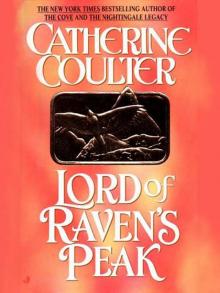 Lord of Raven's Peak
Lord of Raven's Peak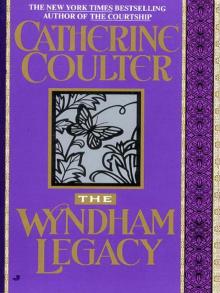 The Wyndham Legacy
The Wyndham Legacy The Strange Visitation at Wolffe Hall
The Strange Visitation at Wolffe Hall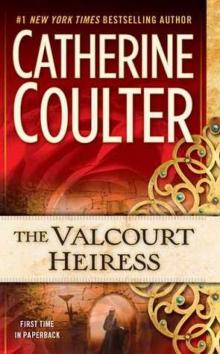 The Valcourt Heiress
The Valcourt Heiress Bombshell
Bombshell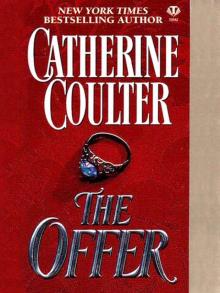 The Offer
The Offer The Edge
The Edge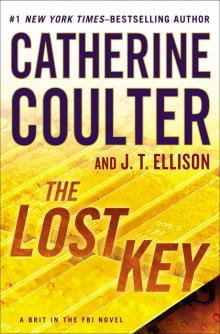 The Lost Key
The Lost Key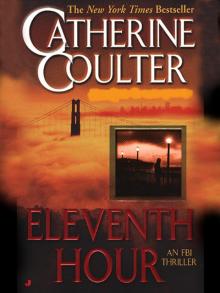 Eleventh Hour
Eleventh Hour Blindside
Blindside Devil's Daughter
Devil's Daughter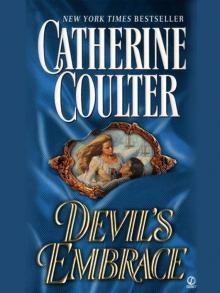 Devil's Embrace
Devil's Embrace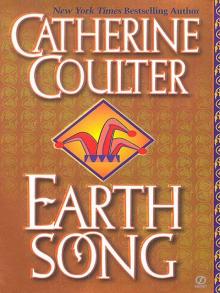 Earth Song
Earth Song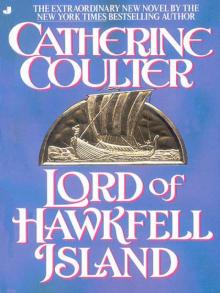 Lord of Hawkfell Island
Lord of Hawkfell Island Calypso Magic
Calypso Magic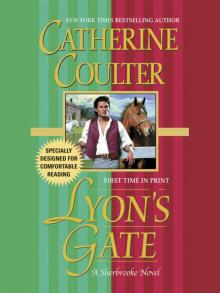 Lyon's Gate
Lyon's Gate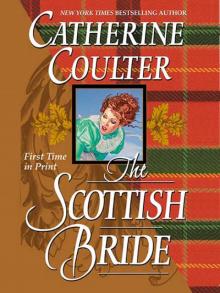 The Scottish Bride
The Scottish Bride Midsummer Magic
Midsummer Magic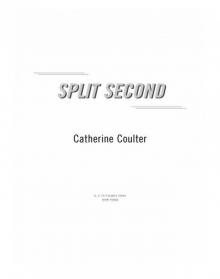 Split Second
Split Second Enigma
Enigma Blowout
Blowout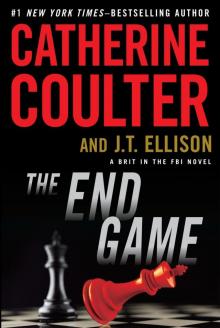 The End Game
The End Game Double Take
Double Take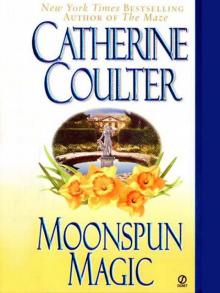 Moonspun Magic
Moonspun Magic The Courtship
The Courtship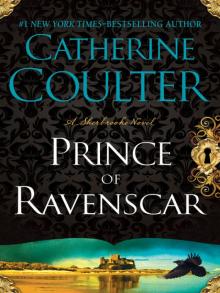 Prince of Ravenscar
Prince of Ravenscar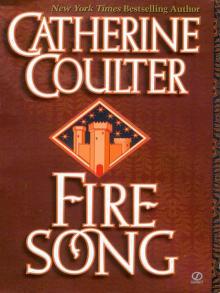 Fire Song
Fire Song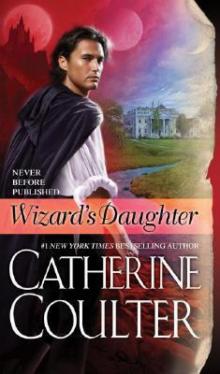 Wizard's Daughter
Wizard's Daughter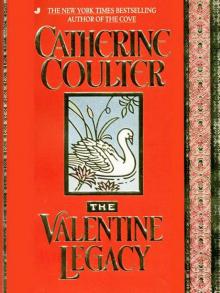 The Valentine Legacy
The Valentine Legacy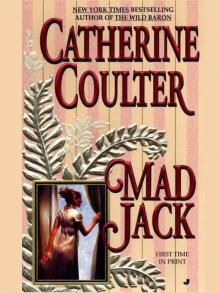 Mad Jack
Mad Jack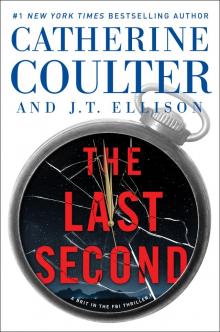 The Last Second
The Last Second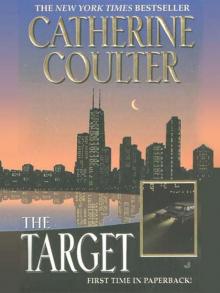 The Target
The Target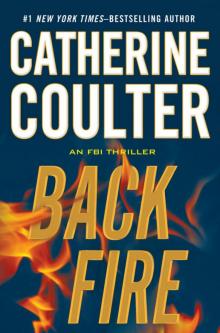 Backfire
Backfire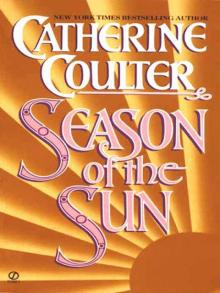 Season of the Sun
Season of the Sun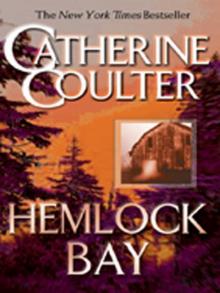 Hemlock Bay
Hemlock Bay Insidious
Insidious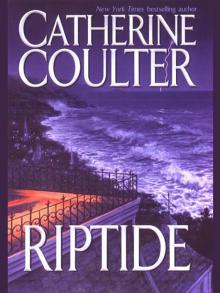 Riptide
Riptide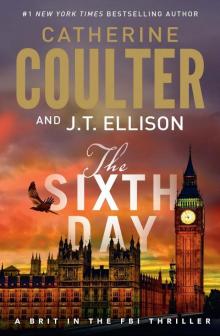 The Sixth Day
The Sixth Day Secret Song
Secret Song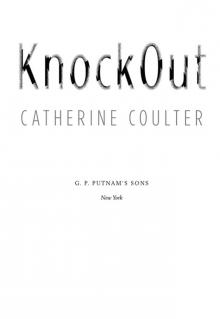 KnockOut
KnockOut Jade Star
Jade Star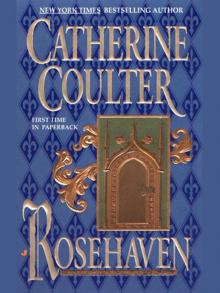 Rosehaven
Rosehaven The Hellion Bride
The Hellion Bride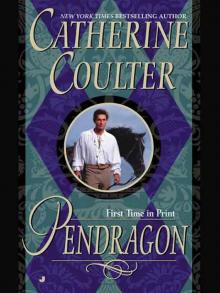 Pendragon
Pendragon Vortex
Vortex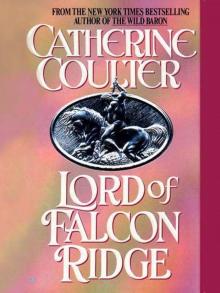 Lord of Falcon Ridge
Lord of Falcon Ridge The Nightingale Legacy
The Nightingale Legacy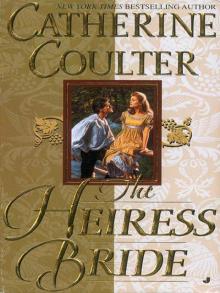 The Heiress Bride
The Heiress Bride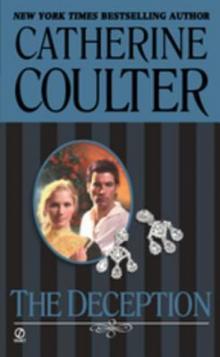 The Deception
The Deception The Maze
The Maze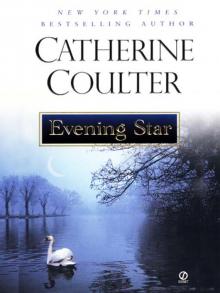 Evening Star
Evening Star Wild Star
Wild Star The Final Cut
The Final Cut Paradox
Paradox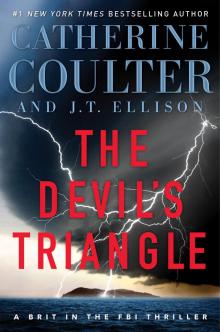 The Devil's Triangle
The Devil's Triangle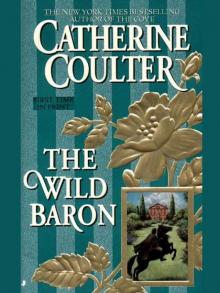 The Wild Baron
The Wild Baron Point Blank
Point Blank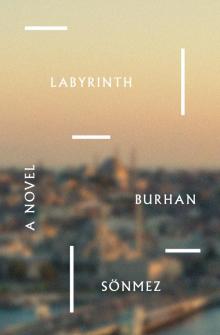 Labyrinth
Labyrinth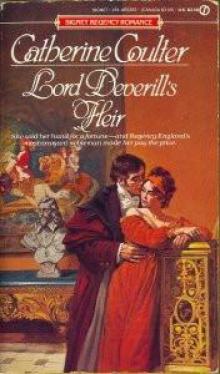 Lord Deverill's Heir
Lord Deverill's Heir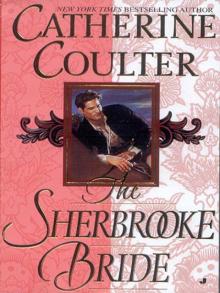 The Sherbrooke Bride
The Sherbrooke Bride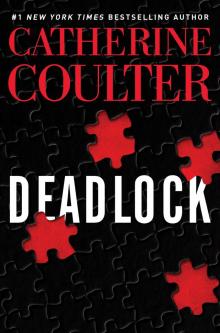 Deadlock
Deadlock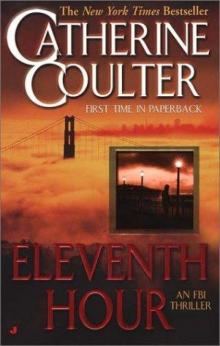 Eleventh Hour f-7
Eleventh Hour f-7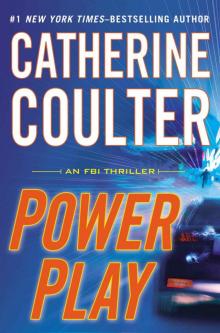 Power Play (An FBI Thriller)
Power Play (An FBI Thriller)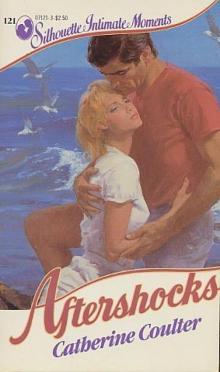 Aftershocks
Aftershocks Sherbrooke Twins tb-8
Sherbrooke Twins tb-8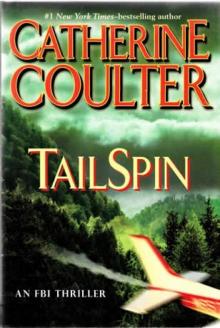 Tail Spin ft-12
Tail Spin ft-12 The FBI Thrillers Collection
The FBI Thrillers Collection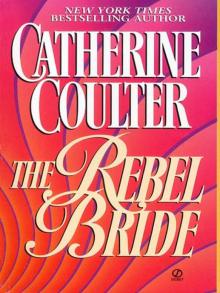 The Rebel Bride
The Rebel Bride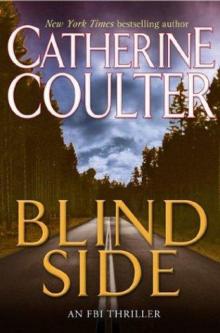 Blindside f-8
Blindside f-8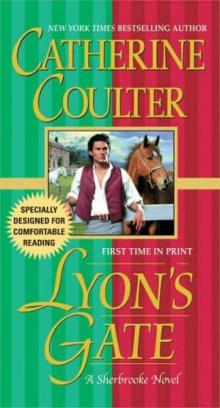 Lyons Gate tb-9
Lyons Gate tb-9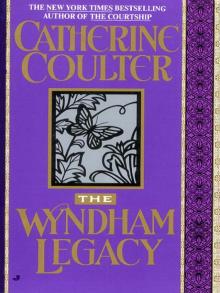 Wyndham Legacy
Wyndham Legacy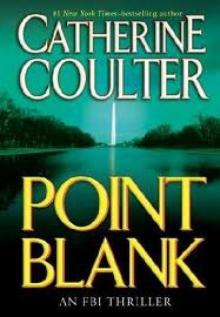 Point Blank f-10
Point Blank f-10 The Prince of Ravenscar
The Prince of Ravenscar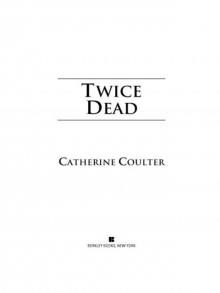 Twice Dead
Twice Dead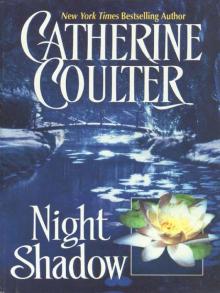 Night Shadow
Night Shadow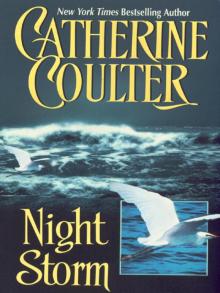 Night Storm
Night Storm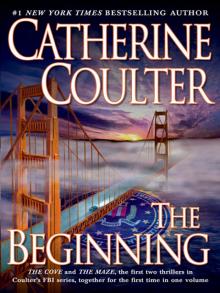 The Beginning
The Beginning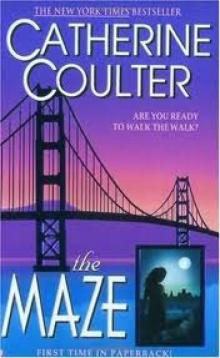 The Maze ft-2
The Maze ft-2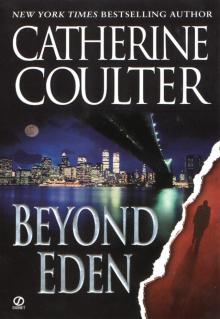 Beyond Eden
Beyond Eden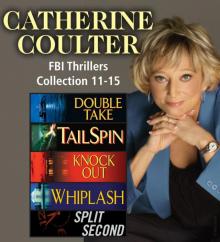 The FBI Thrillers Collection: Vol 11-15
The FBI Thrillers Collection: Vol 11-15 FALSE PRETENSES
FALSE PRETENSES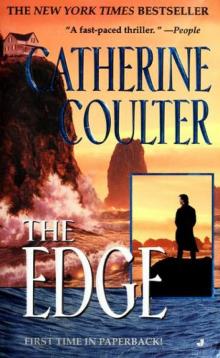 The Edge f-4
The Edge f-4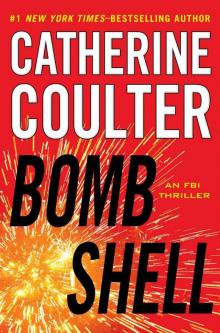 Bombshell (AN FBI THRILLER)
Bombshell (AN FBI THRILLER) The Ancient Spirits of Sedgwick House (Grayson Sherbrooke's Otherworldly Adventures Book 3)
The Ancient Spirits of Sedgwick House (Grayson Sherbrooke's Otherworldly Adventures Book 3)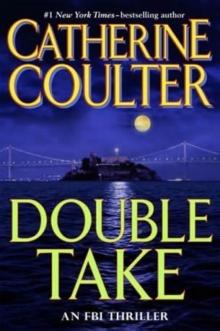 Double Take ft-11
Double Take ft-11 The Heir
The Heir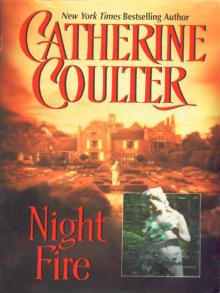 Night Fire
Night Fire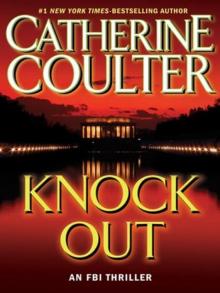 KnockOut ft-13
KnockOut ft-13 Hemlock Bay f-6
Hemlock Bay f-6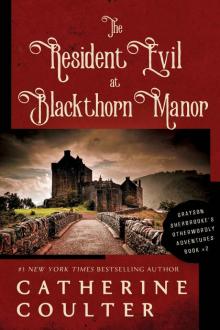 The Resident Evil at Blackthorn Manor (Kindle Single) (Grayson Sherbrooke's Otherworldly Adventures Book 2)
The Resident Evil at Blackthorn Manor (Kindle Single) (Grayson Sherbrooke's Otherworldly Adventures Book 2)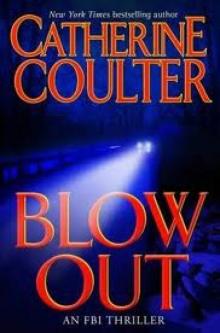 Blowout ft-9
Blowout ft-9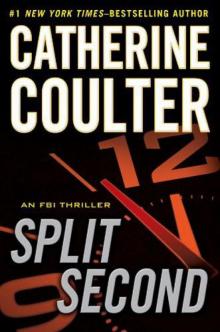 Split Second f-15
Split Second f-15 The Sherbrooke Series Novels 1-5
The Sherbrooke Series Novels 1-5 Impulse
Impulse Paradox (An FBI Thriller Book 22)
Paradox (An FBI Thriller Book 22)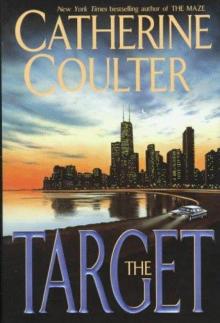 The Target f-3
The Target f-3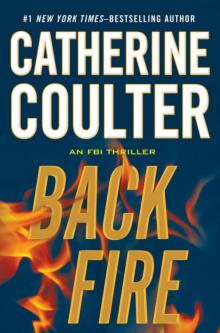 Backfire fst-16
Backfire fst-16 Born To Be Wild
Born To Be Wild Wizards Daughter tb-10
Wizards Daughter tb-10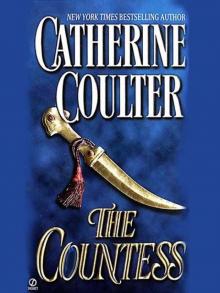 The Countess
The Countess